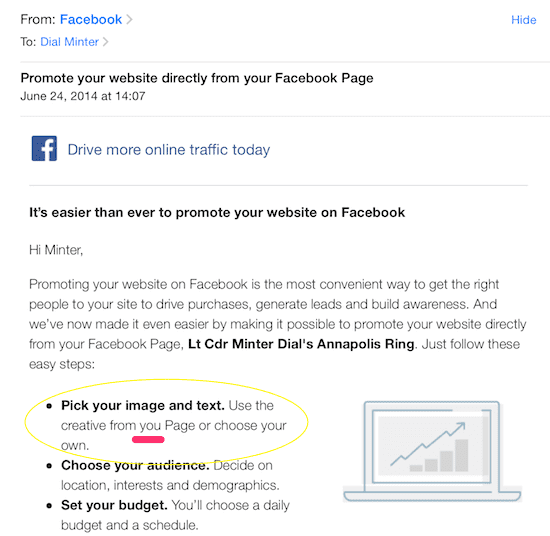Effective copywriting is one of the most important skills in this googlized world, in which email remains one of the bastions of (digital) marketing. {Tweet this} Despite having written numerous manuscripts and short stories, blogging for eight years and keeping up a weekly newsletter for 3 years, I find the art of copywriting positively fascinating and rather elusive. Good writing needs to capture attention and it must convey sense. Whereas the style of writing one reads and learns at school is designed to include good grammar, extended vocabulary and fine figures of speech, copywriting is another gig. For the strong brand, there is a quest to find a voice, where the language and tone resonates with the customers. All the while, with Google search being one of the key paths to discovery, it’s impossible to ignore the importance of search engine optimization and creating the right keywords.
Great copywriting is hard to describe, but you know it when you read it (because you probably clicked through).
Copywriting is a complex and rather overlooked skill in business. Even if it sounds old fashioned, I believe that all marketers should be vetted for their writing skills. My inspiration for starting this post came from a message I received from Facebook (below). There were a number of elements that struck me about this email as counter examples.
Effective copywriting: What not to do?
- Impersonal. It’s not enough to have my first name appear (i.e. “Hi Minter”) to believe this is a personalized communication. Considering Facebook is promoting its ability to mine data and provide personalized targeted marketing, they don’t exactly walk the talk in their own marketing department. Either they know I have a website, in which case they would understand the link between digital marketing and WWII (Lt Cdr Minter Dial was my grandfather, who was killed in 1944) is quite absurd. Or, they don’t know I have a website, which is curious (if not incongruous) since my website is clearly featured in my about me.
- Overkill. The first three lines of this email from Facebook essentially say the same thing. And, on the mobile screen, those three messages consume the entire first page. That’s poor conception/creative, in my opinion. Considering the amount of email that is being consumed on mobile (and how important mobile is for the continued success of Facebook), one must review how the content appears on multiple devices.
- Bad Grammar. The tone of this message is sharp and direct. The informal contractions (we’ve, you’ll…) are de rigueur. However, it is quite unprofessional to send out an email with a typo. In the case of this message, which presumably was sent out to hundreds of thousands of Facebook Page owners, it contains a mistake: “Use the creative from you Page…”. From smaller companies, one might accept as much (I know that I make plenty of typos despite my best efforts). However, for a 100-word message from a rather large, well-staffed company, this is just not excusable.
3 keys to effective copywriting
Great copywriting is definitely an art. There is no easy blueprint to effective copywriting as each message contains a specific content for a specific audience in a particular context. Moreover, always writing in exactly the same tone and style will invariably dull the effectiveness. Here are the three keys that I try to use to sharpen my copywriting:
- WIIFM or What’s in it for me? The intended audience of your communication must quickly see the benefit for them.
- Consistent and Conversational Tone. To the extent you are planning to write for an extended period of time, the ideal is to use a language befitting a relationship. You want to be authentic to who you are and use a language that is easy to read and understand.
- Don’t oversell. First, in terms of mindset, I believe that people would rather buy your story, than feel that they are being “sold” to. Secondly, in terms of gaining long-term equity, it’s better to undersell and over deliver. Lastly, and most fundamentally, if all your communications are about selling, the chances are that you are not sufficiently focused on the deeper value of the customer relationship. As I have said before, better to stop barketing and start engaging.
Your thoughts and reactions are welcome!













This is great advice. Thanks for sharing!